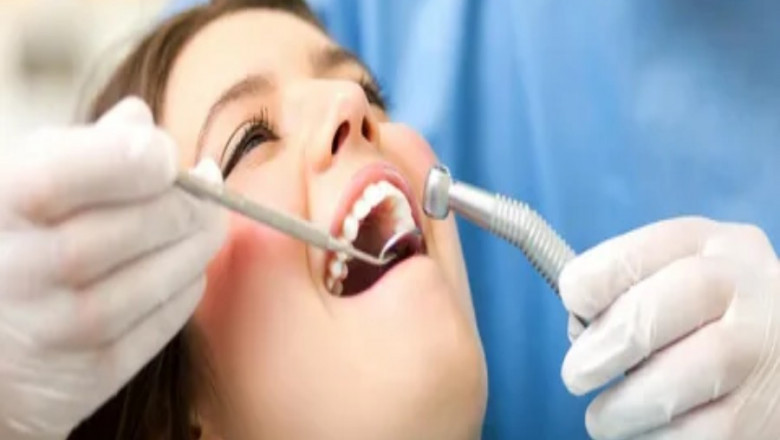views
History of Research
Scientists have been researching the potential for tooth regeneration for decades. Some early successes with growing tooth bud cells in laboratories in the 1970s showed it may be possible, but challenges remained in fully regenerating an entire tooth structure. In the 1980s, researchers started to look at the signaling proteins involved in natural tooth development for clues. They found some success triggering tooth development in animal models by manipulating these signaling proteins. This helped identify several key pathways that could be targeted.
Stem Cells and the Future of Tooth Regeneration
In recent years, scientists have focused research efforts on dental stem cells and their role in tooth regeneration. Adult dental stem cells have been found residing in dental pulp, periodontal ligament tissues, dental follicle, and in the apical bud of developing teeth. Tooth Regeneration in the Research has shown these stem cells are capable of differentiating into other tooth tissues like dentin, enamel, and cementum under the right conditions. Several studies in the 2000s and 2010s demonstrated the ability to generate tooth-like structures and even fully formed teeth by growing and guiding dental stem cells. Going forward, understanding how to better control stem cell differentiation will be important for optimizing tooth regeneration techniques.
Tissue Engineering Approaches
Along with stem cell research, tissue engineering is another approach scientists are pursuing for tooth regeneration. Tissue engineering seeks to combine scaffold materials, signaling molecules, and living cells to regenerate biological tissues. For teeth, early experiments involved seeding dental stem cells onto various tooth-shaped scaffold materials. More advanced scaffold designs now incorporate signaling proteins and growth factors to better mimic the natural tooth developmental environment. Some experiments have even used a patient's own tooth-derived stem cells combined with 3D printed scaffolds. This personalized medicine approach could one day allow growing replacement teeth tailored exactly for an individual.
Potential Clinical Applications
If research advances to the point where fully functional teeth can be reliably regenerated, there are several potential clinical applications on the horizon. For people missing a single tooth, a regenerative approach might avoid issues with traditional implants or bridges by regrowing the natural tooth structure. Those missing several teeth could potentially see many regenerated at once. The technology may also help children who lose baby teeth before the permanent teeth fully develop underneath. Regenerating teeth could help alleviate the costs and challenges associated with dental implants and other prosthetic replacement options currently available. Some long term hopes even include being able to regenerate third molars or wisdom teeth to avoid surgical removal where possible.
Challenges Remain
While exciting progress has been made, many challenges remain before tooth regeneration becomes a clinical reality. Scientists are still working to optimize regeneration of all the complex tooth tissues like enamel, dentin, and cementum, not just dental pulp-like structures. Integration of a regenerated tooth within the existing alveolar bone and periodontal tissues also needs refinement. The effects of biomechanics, biting forces, and longevity over many years in the mouth are not fully understood. Further research is warranted to scale production techniques up for reliable clinical applications. The complex signaling pathways involved in natural tooth development need to be replicated more precisely as well. Bringing the cost down for widespread patient access will be another hurdle. With continued research progress, regeneration may start transitioning to human clinical trials within the decade if these obstacles can be overcome.
Ethical Considerations
Along with scientific challenges, regenerative dentistry presents some ethical issues worth examining as the field advances. Questions may arise around whether attempting to regenerate entire teeth pushes natural evolution in an uncertain direction. Concerns about preserving established dental techniques and protecting existing dental careers also factor in. Ensuring equitable access to the technology will be crucial, especially related to intellectual property and costs of specialized procedures. Even defining what constitutes a natural versus artificial regenerated tooth structures warrants discussion. Overall, advancing the science safely, thoughtfully, and with patient interests as highest priority will help address these types of ethical complexities. With an evidence-based approach focusing first on unmet medical needs, regenerative dentistry seems poised to make significant strides.
It holds enormous promise for improving oral health outcomes by avoiding extractions and the limitations of dental implants or bridges. Decades of ongoing research progress harnessing stem cells, tissue engineering and developmental signaling pathways have helped establish a strong scientific foundation. Though technical challenges remain in fully recreating the native tooth structure and function, each new study further elucidates the underlying developmental biology. If researchers can continue optimizing regeneration techniques while also addressing related ethical considerations, transitioning the science to validated clinical trials will be an exciting next step. With further research milestones on the horizon, tooth regeneration may one day provide an innovative way to regrow damaged or missing teeth for improved quality of life.
For Deeper Insights, Find the Report in the Language that You want.
French German Italian Russian Japanese Chinese Korean Portuguese
About Author:
Money Singh is a seasoned content writer with over four years of experience in the market research sector. Her expertise spans various industries, including food and beverages, biotechnology, chemical and materials, defense and aerospace, consumer goods, etc. (https://www.linkedin.com/in/money-singh-590844163)






















Comments
0 comment